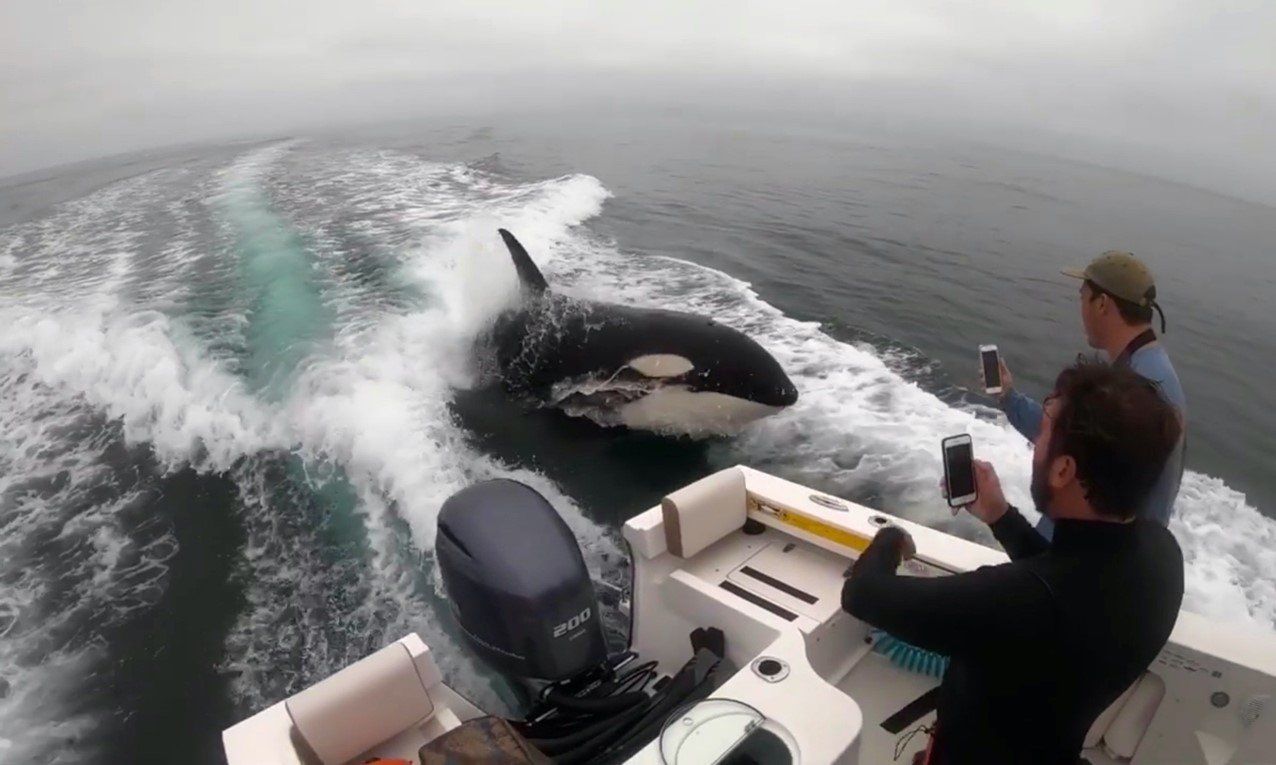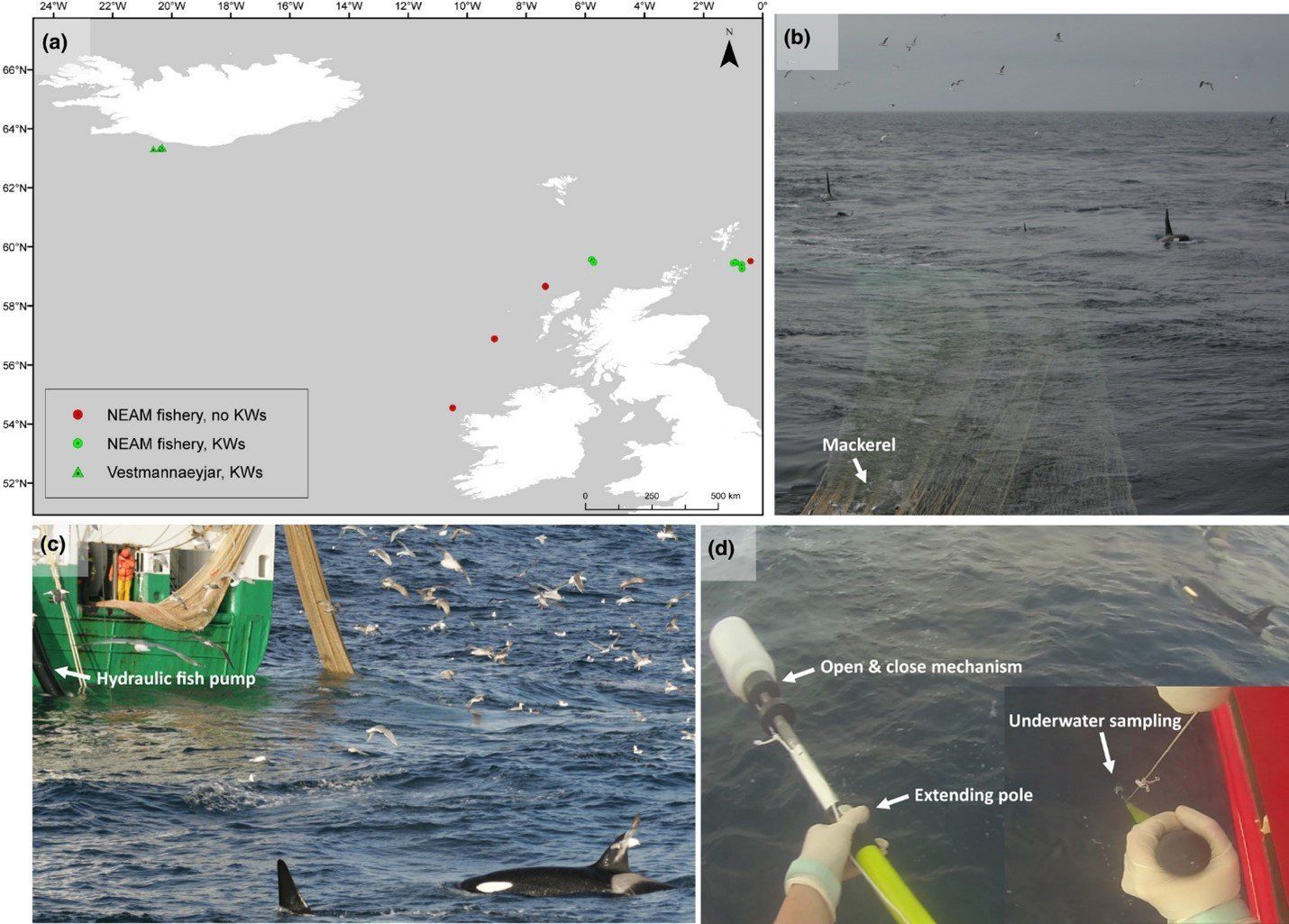eDNA: The Survey Tool of the Future.
eDNA: The Survey Tool of the Future
ORCA Sci-Comm Team | 16th November 2020
The study of environmental DNA, or eDNA, for the purpose of species detection in the marine environment is a developing field. All organisms have DNA, and that DNA is released into the environment regularly in the form of blood, hair, skin cells, scales, and faeces. The DNA that individual organisms release into their environments is referred to as eDNA, and can be used by scientists to determine what kinds of species inhabit certain areas or have recently passed through. There are many applications for the use of eDNA including biodiversity studies, determining species abundance, and detecting invasive species. A group of researchers set out to test the effectiveness of using eDNA to gather population data on an offshore killer whale (Orcinus orca) population.
The use of eDNA to study freshwater habitats is well established and has proven to be a much more cost-effective way to study species rather than conducting surveys and tagging individual organisms. However, in the marine environment, things have not been as easy, and many challenges have presented themselves. One of the biggest challenges is the amount of time eDNA lasts in the marine environment. From the moment this DNA enters the environment, it begins to degrade. This degradation has been shown to happen in the ocean faster than in freshwater systems possibly due to tides and currents, salinity, or the constant mixing of the water. In order to try to avoid this problem, a killer whale population known to forage from commercial mackerel trawlers was chosen for this study due to how close the researchers would be able to get to the whales. By targeting this population, the hope was that the eDNA would not have enough time to disperse.
To collect eDNA, the researchers took samples of the water near the whales both from the surface and from 2 to 5 meters below the surface. All of the samplings was done from Irishtrawl fishing vessels, and samples were taken from the North Sea and Irish waters. To isolate the desired killer whale eDNA species specific primers were added to the eDNA collected. The DNA was then amplified using quantitative PCR (qPCR), a method that allows for the amount of DNA present to be measured.
Despite having seen killer whales within 20 meters of almost all sample collection sites, the researchers were unable to amplify any killer whale eDNA. To make sure that this unexpected result was not due to the primer or the qPCR machine, they tested their methods on a control sample of killer whale DNA. This DNA sample was successfully amplified, leading researchers to believe that there could have been a problem with the eDNA samples collected from the trawlers.
To test this possibility, they tried to amplify the eDNA of the mackerel that was definitely present in the area as that is what the trawlers were after. They used the same methods they used in attempting to amplify the killer whale eDNA. This time they were successful and the mackerel eDNA was amplified. This means that the problem was not with the samples. This led to the conclusion that the issue was with the presence of killer whale eDNA. The researchers concluded that the killer whale DNA was either not present at all in the samples, or that it was present but at levels too low to detect.
The researchers determined a variety of different factors that could explain the lack of killer whale DNA present within the eDNA samples. One of the factors discussed was sea conditions. At some of the sample sites, the ocean was very choppy, which could have caused the DNA to disperse more quickly. Another factor mentioned was that there is a possibility that the killer whales are only present during the time when the mackerel are hauled onto the boat and are therefore not around long enough. Other ideas were that killer whale skin sheds at a slower rate in cold waters, and that while on the hunt, killer whales’ behaviour is different, and they do not defecate as frequently. Both of these ideas would also account for why there was not enough DNA present. In particular, the change in behaviour while hunting may offer one of the best explanations as faeces is the biggest source of eDNA.
Overall, the researchers concluded that other scientists must use caution when interpreting the results of eDNA tests in the marine environment. Because the ocean is a constantly moving system, there is always a risk of receiving false negative results, meaning that your lab results do not confirm what was observed in the field. In the case of this study, eDNA did not prove to be an effective method for surveying killer whales. There are many different factors that can impact the results of a study like this including where the sampling sites are located, the conditions of the ocean, the temperature of the water, and animal behaviour. While developments have been made in the field of eDNA use in freshwater systems, more research must be done in marine areas before it can be used reliably to monitor organisms.
© Ocean Research & Conservation Association Ireland (ORCAireland) and www.orcaireland. org , est. 2017. If you like our blogs on the latest news in marine science and would like to support our work, visit www.orcaireland. org to become a member, to volunteer or to make a donation today. This article has been composed based on credible sources.
Reference:
Pinfield,R., et al. (2019) False-negative detections from environmental DNA collected inthe presence of large numbers of killer whales (Orcinus orca). EnvironmentalDNA. 00:1-13.
SHARE THIS ARTICLE















